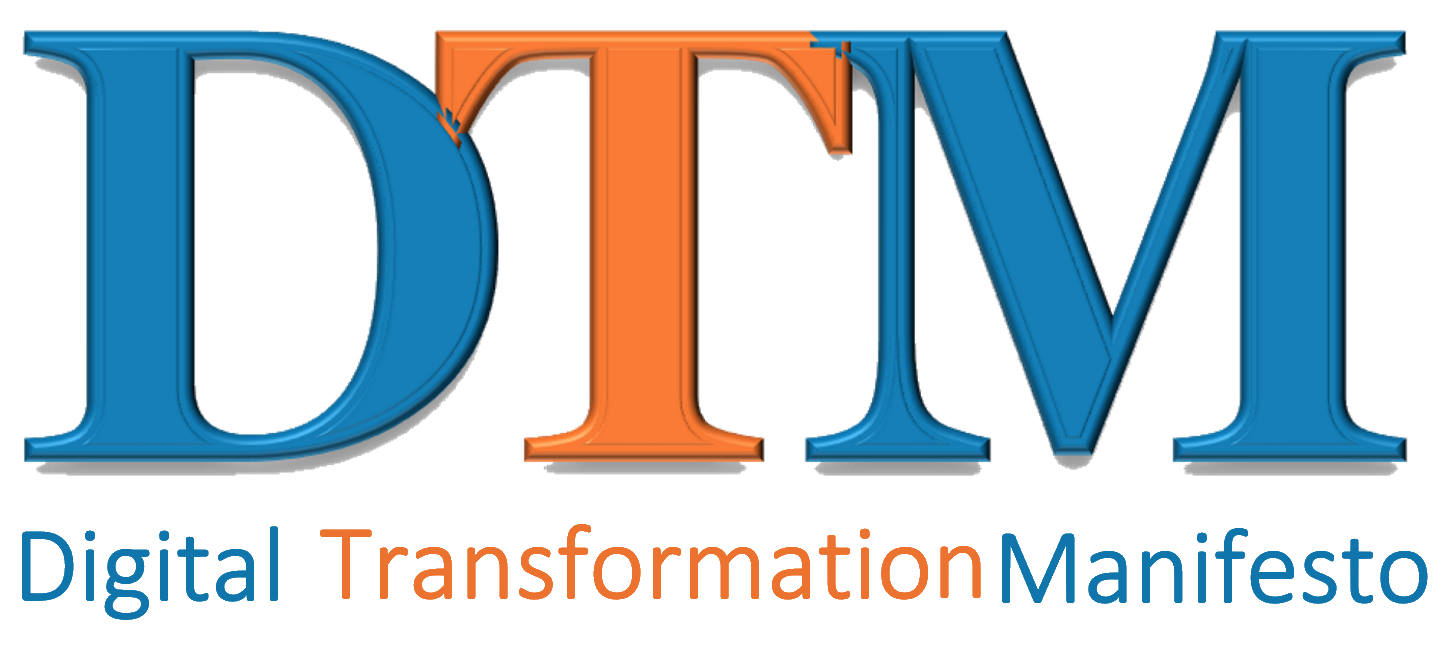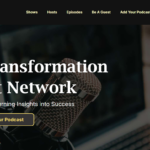This is the seventh of 8 articles describing the tenets of the Digital Transformation Manifesto. Reimaging Strategy and Practices is the sixth tenet.
The seventh tenet of the Digital Transformation Manifesto is, “Our culture is one that empowers individual leadership.” Jeff Bezos, the CEO of Amazon, commented in a discussion on digital transformation, “The only sustainable advantage you can have over others is agility.” A digitally transformed organization is one that embraces continuous change. The technology is rapidly advancing, the competitive landscape in every industry is going through upheaval, even the patterns of interaction throughout society are rapidly changing. Continuous change is foundational in the world in which we now live. But continuous change can be a strain on individuals and organizations. Effective leadership is needed whenever there is change underway.
Digitally transformed organizations tend to have a flat organizational structure. They do not require myriad layers of management controlling information and decision-making. Individuals at all levels of the organization have the real-time information needed to understand a situation and they have the authority and responsibility to make decisions. The managers do not control, rather they prioritize, coach, train, mentor and facilitate. The senior managers with leadership skills that encourage and empower are at a premium, not those that direct and control.
The implication for digitally transforming organizations is that they need to recruit, hire, and train leaders throughout the organization. The organization does not rely upon automatons doing only what they are told – they have robots to do that. Rather, they need their employees and associates to take appropriate action in every situation, be problem solvers, and proactive implements of positive change. In other words, the digitally transformed organization relies on leaders at every level and position in the organization. Based upon the speed at which digitally transformed organizations operate, the delay of referring problems and questions to the boss and then waiting for a response is intolerable. People at the front line of the organization’s processes must act in real-time.
Empowered leadership is not something that is new or unique to digital transformation. But it is included because an organization cannot successfully transform unless it creates a culture of empowered leaders. This does not depend upon technology it depends upon the organization culture. The culture starts at the top with executives and is amplified throughout the organization. This culture is reinforced by the hiring, training, promotion, and human resource management within the organization. For many organizations, this culture is the most difficult aspect of implementing digital transformation. It is not something that can be changed by installing a new system. Rather, it requires changes in the behaviors and interactions of individuals throughout the organization. That means changes in habits, paradigms and business relationships.
An absolutely critical element of this transformation is the development of trust between individuals. Senior leaders must trust that the people in their organization will make the right decision when given the right tools and information. And individual must trust that senior leaders will support them in their work and help them to grow both personally and professionally. Trust is built on a track record of interactions. An organization that does not have a track record of empowering everyone to lead will need a steady stream of interactions to overcome the mistrust. Creating and sustaining that stream of interactions can take years, which is why this is possibly the most difficult of the elements of digital transformation.
Creating a culture that empowers everyone to lead is necessary in the new environment being created by digital transformation. We have included creating a culture of empowered leaders as a tenet of the Digital Transformation Manifesto because we do not believe an organization can successfully transform without it. This tenet addresses responsibilities and authority with the organization. It drives the organizational development, including hiring, training, and promoting the workforce.
In my next article, we will be exploring Ethics are Integral to Our Organization.![]()
Tag/s:Business TransformationDigital EnterpriseDigital EraManifestoOrganizational Change






1) After the reading, I can’t help to thumbs up to the owner of the seabed fishery Zhang Yong. One of the main features mentioned in “Seabed can’t learn” is that the stores have autonomy, the store managers have it and even the employees have it. Looking back at the article, what struck me most was that “based on the operational speed of the digitally transformed organization, the delay in submitting problems and questions to the boss and then waiting for a response is intolerable. People on the front lines of organizational processes must act in real time.” This is a culture of empowered leaders! It’s something that Yong Zhang came to realize on his own. In the VUCA era, a professor had previously proposed a response, Ambiguity (ambiguity) corresponds to Agility (agility). Empowered with the staff, they can have some resources to call, out of the unpredictable jungle, to have some resources to defend themselves, to deal with the changing customer situation. This is the business wisdom of the service industry. Come to the digital battlefield, now it may also be necessary.
2) “Managers are not controlling, but are good at scheduling, coaching, training, mentoring, and facilitating. Senior managers with leadership skills that encourage and empower are important, not those who direct and control.’ Digital transformation requires leaders who are servent (also translated as “servant”) and who themselves need to be transformed, both in terms of technical and soft skills. Both for the transformation and for the management of the new generation of digital natives.
3) But for “they don’t need countless layers of management control over information and decisions. Individuals at all levels of the organization have the real-time information they need to understand the situation. Because perhaps the self-help and autonomy you can have is backed by countless layers of “IT systems” and countless “information flows” that already help you make good decisions or are trying to provide assistance. Of course, the author’s intention is to emphasize the management level, I am just a barbarian Benjamin.